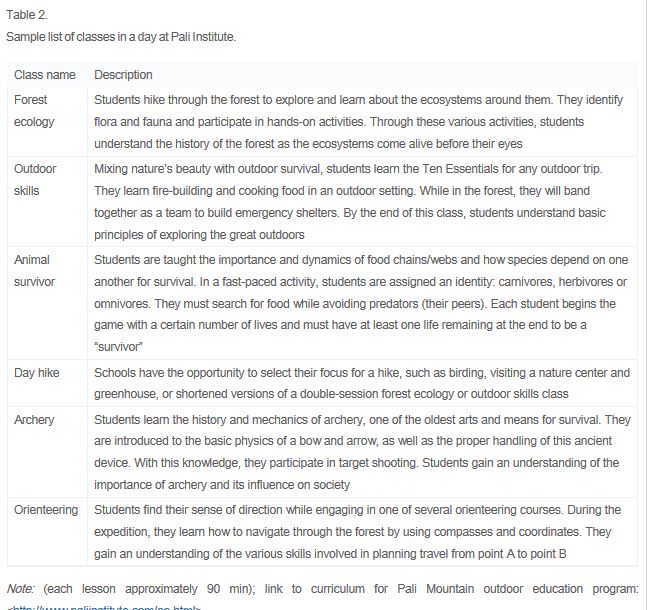Researchers examined kids' ability to assess non-verbal emotion cues from still photos and from video scenes from which dialog had been removed. These assessments were made pre- and post-intervention.
The intervention is where things get weird. The press has it that the main intervention was the removal of electronic devices from children's lives for five days. In fact, the experimental group went to a sort of educational nature camp call the Pali Institute. While control subjects went to their regular school, experimental subjects participated in activities like these:
In the discussion the authors do allow "We recognize that the design of this study makes it challenging to tease out the separate effects of the group experience, the nature experience, and the withdrawal of screen-time." But then go on to say "but it is likely that the augmentation of in-person communication necessitated by the absence of digital communication significantly contributed to the observed experimental effect." That's a mere wish. We in fact cannot draw any conclusions about the source of effect.
It's a shame that news outlets are not more discriminating in how they report this sort of work.

 RSS Feed
RSS Feed